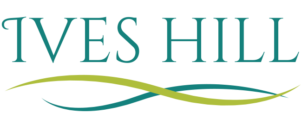Calcium and vitamin D are two of the most important nutrients for bone health, but vitamin D deficiency is common among seniors. Because seniors typically drink less milk and spend fewer hours outside, they often aren’t getting all the vitamin D they need. For most people, sunlight is the most important source of vitamin D, as sunlight converts cholesterol to vitamin D in the body. The kidneys help activate this process, but this function decreases with age.
Sunlight may not be enough.
Researchers have suggested that it takes up to 30 minutes of sun exposure twice a week to make a sufficient amount of vitamin D from sunlight. The National Institute of Health recommends that adults rely on food and supplements to get the right amount of vitamin D each day.

Vitamin D is not common in most foods. Some foods – like dairy products and orange juice – are fortified with vitamin D. Other foods like fatty fish and salmon, beef liver, cheese and egg yolks are also a good source of vitamin D.
How do you know if you’re getting enough vitamin D? Seniors should talk to their health care professional and check their vitamin D levels. There are several key signs of vitamin deficiency. Heaviness in the legs or difficulty standing and climbing stairs can indicate a deficiency. Studies have shown that vitamin D is responsible for activating genes that affect the functions of the brain, including the release of serotonin and dopamine. Seniors who feel depressed and tired may actually be suffering from a vitamin D deficiency. Fatigue, inflammatory bowel disease and weight gain are other indicators that a vitamin D deficiency may be present. Vitamin D is critical to bone strength and also aids in muscle movement, regulates cell growth and helps fight infections.
—-
Heritage Ministries, the parent company of Ives Hill, was founded as the Orphanage and Homes of the Free Methodist Church in 1886 and has grown from its original campus in Gerry, NY, to six locations in New York with additional affiliations in the states of Washington, Illinois, and Pennsylvania. As a not-for-profit provider of senior care and housing, Heritage is a leader in the industry, employing approximately 1,500 team members, and serving over 2,500 individuals annually. With locations in New York, Pennsylvania, Illinois, and Washington, Heritage and its affiliates provide rehabilitation and skilled nursing services, independent retirement housing, and assisted living. The Homestead Stables provides intergenerational equestrian opportunities as well as boarding, training, and lessons. In addition, childcare is provided at two campuses, allowing for intergenerational programs. For more information on Heritage Ministries, please visit www.heritage1886.org.
